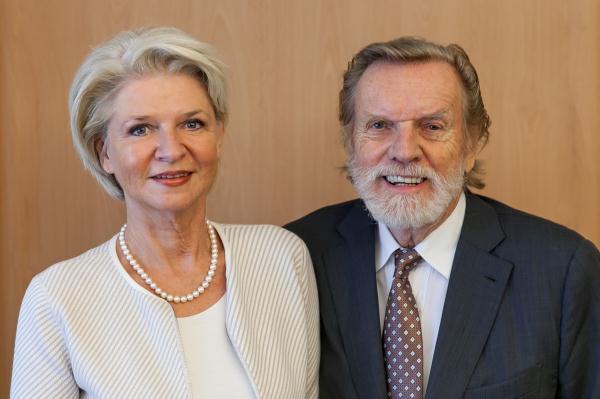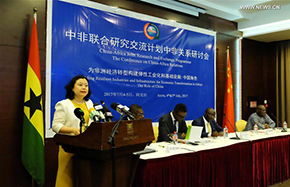US futurist touts the rise of China
 |
|
John Naisbitt and his wife Doris Naisbitt. [Photo/Agencies] |
"No country in the world has made economic progress in such a short time. No country in the world has returned to be a global player in such a short time," said famed American futurist author of Mega-Trends John Naisbitt in a TED talk held in the Ullens Center for Contemporary Art at 798 Art Zone in Beijing on Sept 16.
The 88-year-old Naisbitt finished the whole speech accompanied by his wife, Doris Naisbitt, a long-time observer of global social, economic and political trends. They knew and fell in love with each other during the writing of Mega-Trends. As Doris said, "Asia and China brought us together."
John Naisbitt paid his first visit to China in 1967 when he served in the White House under Kennedy and Johnson.
"At that time, the difference between Washington and Beijing could not have been greater," he recalled.
Since then, John came to China on a regular basis and felt fascinated to see the changes. "I could not have imagined the China of today," he said.
Speaking on China's advancements in the past five years, John Naisbitt mentioned China's leading role in quantum science, quantum computing and the first fully Chinese aircraft, the C919. But China is not only leapfrogging its innovation processes, he said. China has also created new alliances and trade zones like the Belt and Road Initiative, which has the potential to reinvent globalization and create a more balanced growth model.
Asked for what made China's achievements of the past five years possible, Doris Naisbitt replied, "China has developed a new model of governing, and that has helped the country make great achievements in the past 30 years."
"The advantage of the Chinese system lies in the ability of the government, of the leadership, to allow long-term plans which are not interrupted by election-driven thinking," she explained. "Communication between leaders and common people and the use of both top-down and bottom-up approaches to address social problems in China has helped Chinese leaders to unify the nation and focus on development."
John supported his wife's opinion and gave credit for China's transformation to the governmental frame in which people could then contribute their share, both for their own benefit and for the progress of China.
Besides the congruence between the goals of the government and the goals of the people, the couple discussed two more reasons behind China's success.
China has high correlation between how the government sees itself and how it is seen by its people. When asked, "Overall, are you satisfied or dissatisfied with the way things are going in our country today," in the last poll in 2010, 87 percent of those in China answered "satisfied", compared with 36 percent in the US.
The other reason is how the global community sees China and how China sees itself. In a Pew Research poll conducted in 2014, 33 countries have accepted the rise of China.
As a leading futurist observing China for about half a century, John Naisbitt predicts China's prosperity is far from over, and a great future lies ahead.
The Naisbitts believe in the next decade China will not only change the global economy, but challenge Western democracy with its own model.

























